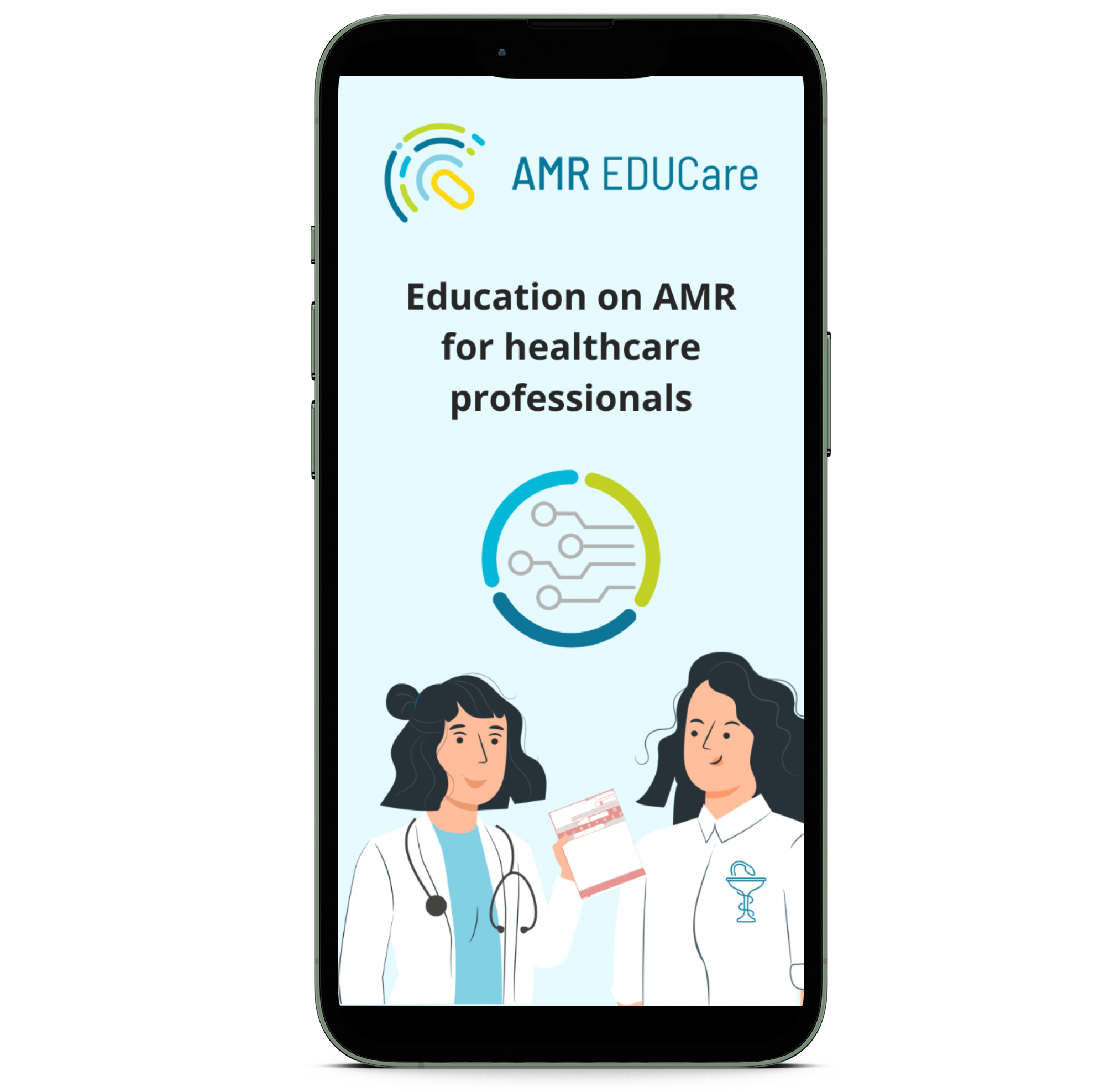DIGITAL HEALTH SKILLS AND BEHAVIOURAL CHANGE
Vision:
Our vision is to provide cutting-edge digital skills and change behaviour tools to be incorporated in all training modules developed in this project.
Objectives:
- Reduce the use of antibiotics and combat antimicrobial resistance (AMR) by developing digital skills among healthcare professionals, which includes improving their technological, management, logistics (waste reduction, waste management), and procurement skills.
- Identify and implement technological tools that have the potential to change the behaviour of stakeholders involved in antibiotic use and management and enhance the effectiveness of AMR reduction strategies.

Why action/education is needed:
- To promote more efficient use of resources available
- To promote medical professionals with skills to reduce the use and misuse of antibiotics
- To equip the prescribers with awareness of their behaviour and tools to change it
What this project will achieve:
- Develop training modules to help medical professionals and health managers to reduce the use and waste of antibiotics.
- Develop tools for medical professionals and health managers to assess and be aware of their behaviour and to adjust it to reduce the use of antibiotics.

Cristina Camilo
Work package leader
Instituto Universitário de Lisboa (ISCTE)
Mission statement:
“We recognize the urgent need to address the challenge of antimicrobial resistance (AMR), which poses a significant threat to global health and well-being. Our mission is to contribute to the fight against this pandemic by developing educational modules that empower medical professionals and health managers to reflect on their behaviours and become more skilled in promoting the responsible use of antimicrobials. Through the joint effort of a multidisciplinary team, we strive to raise awareness, provide training, and promote sustainable practices that will help reduce the excessive use of antimicrobials and prevent the devastating consequences of AMR. “

Funded by the European Union. Views and opinions expressed are however those of the author(s) only and do not necessarily reflect those of the European Union or the Health and Digital Executive Agency (HaDEA). Neither the European Union nor the granting authority can be held responsible for them.
